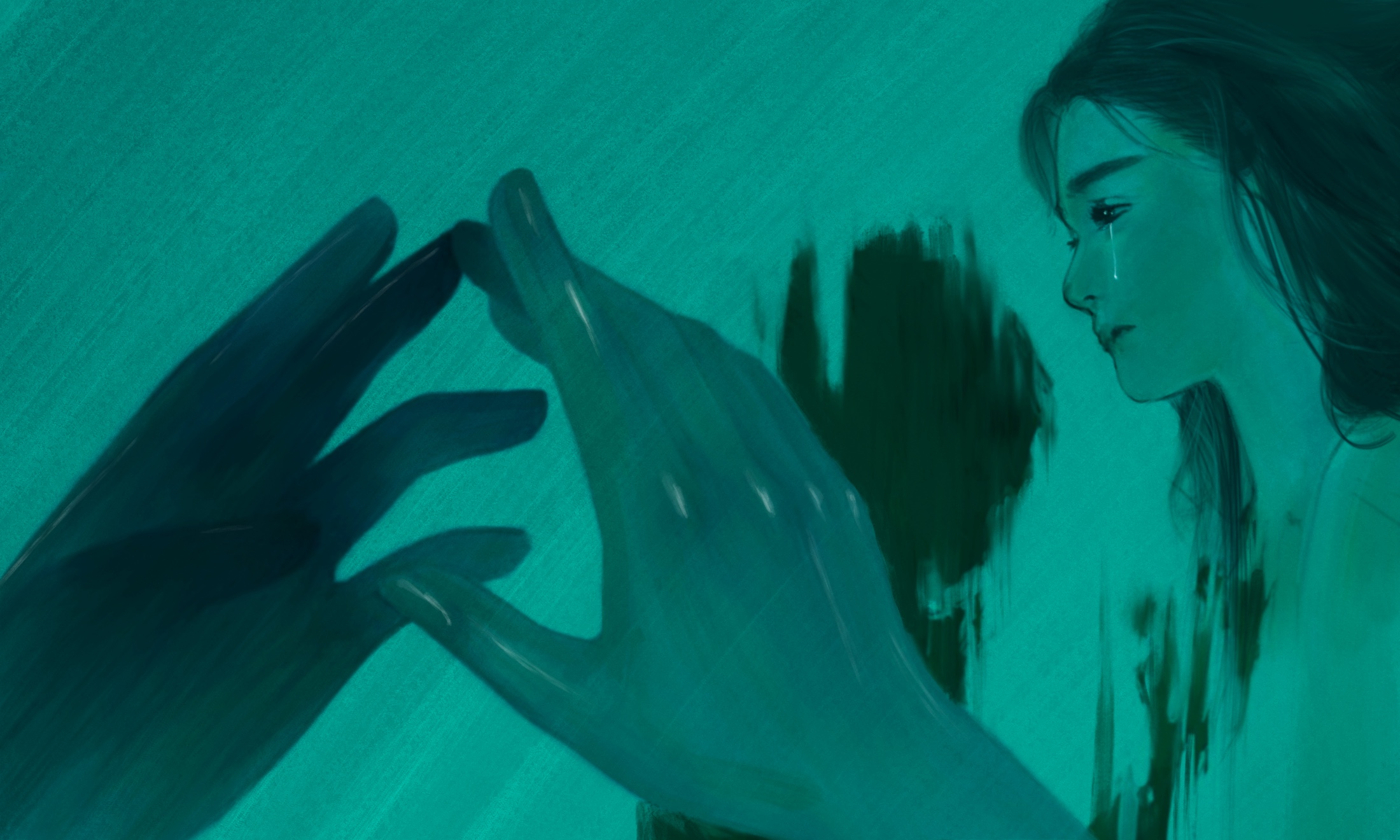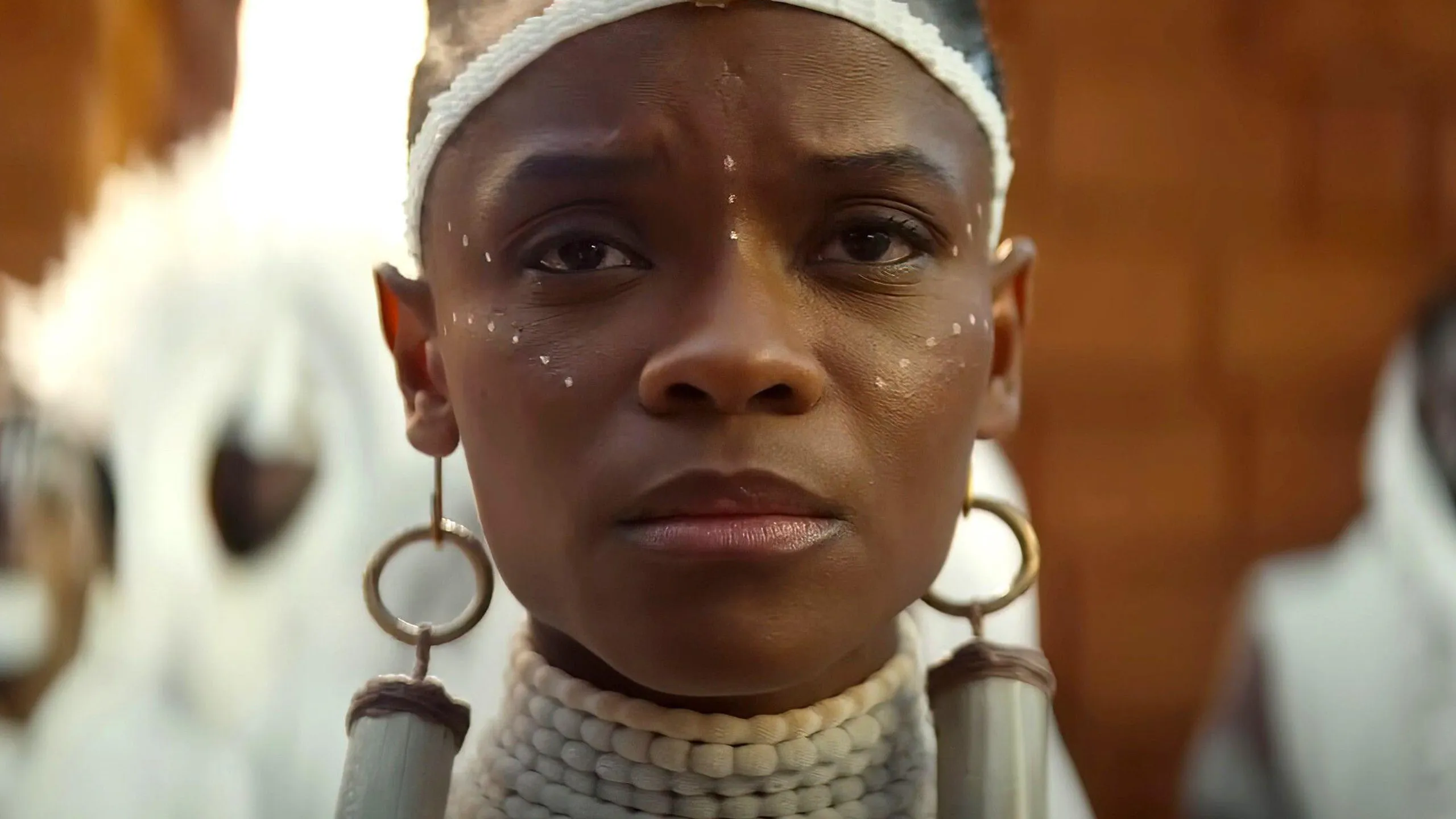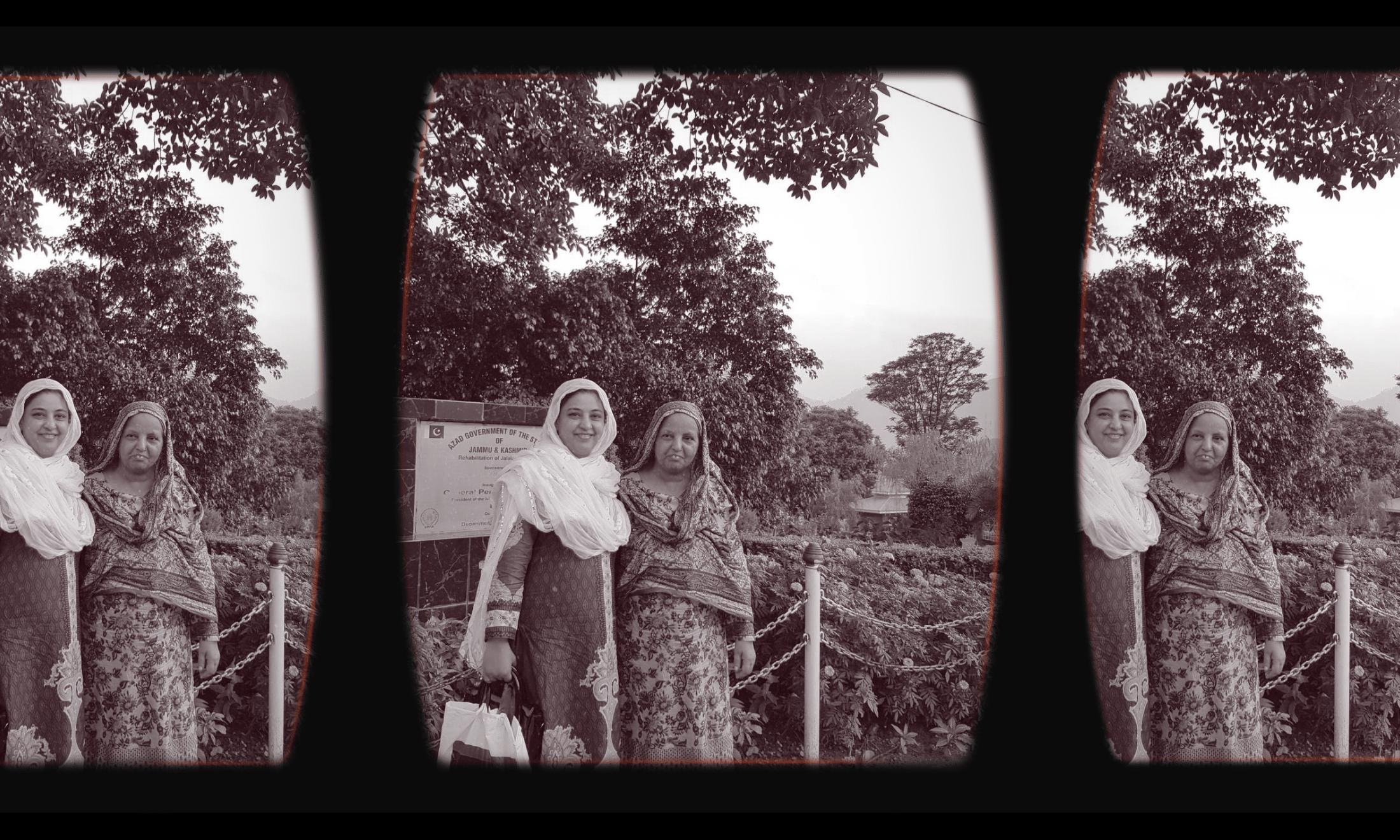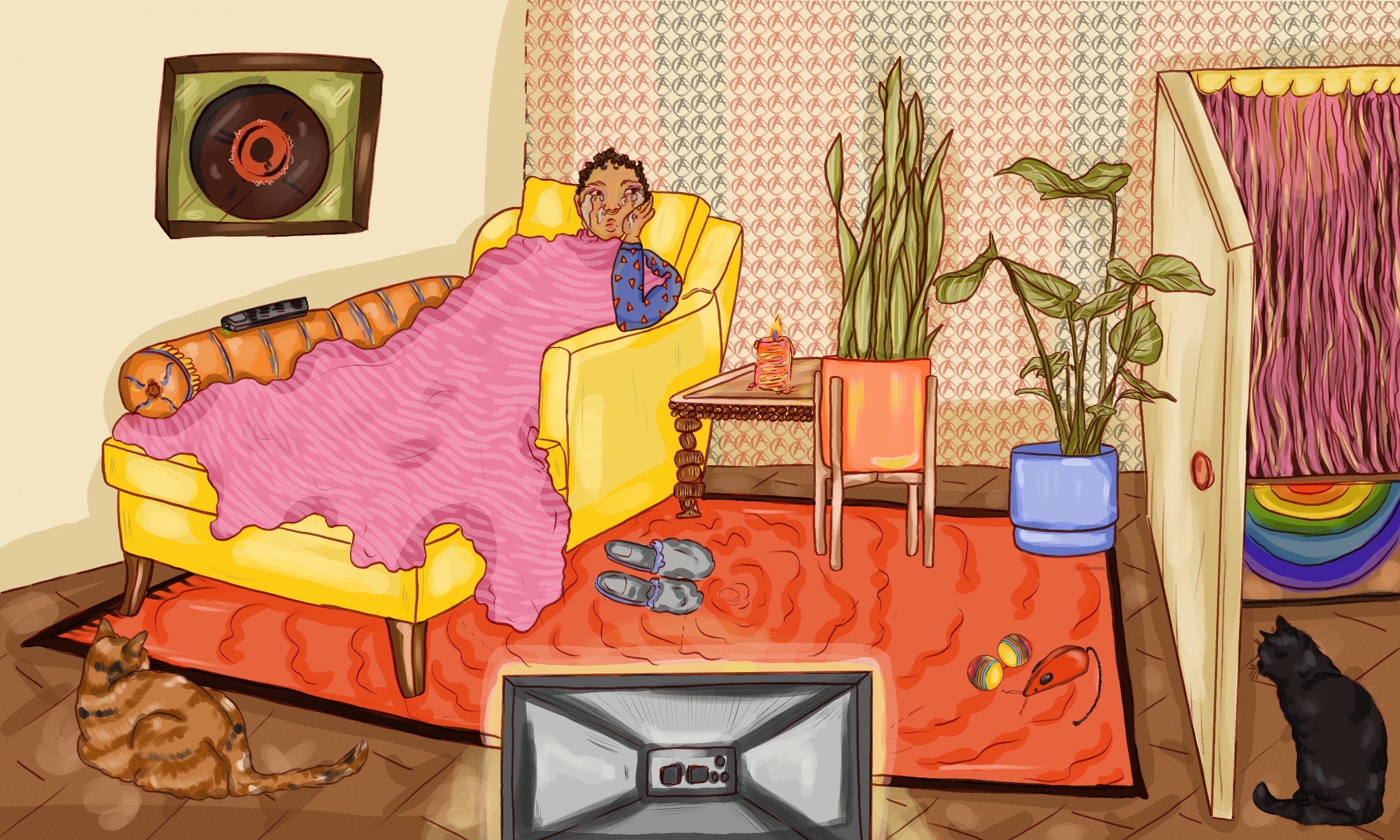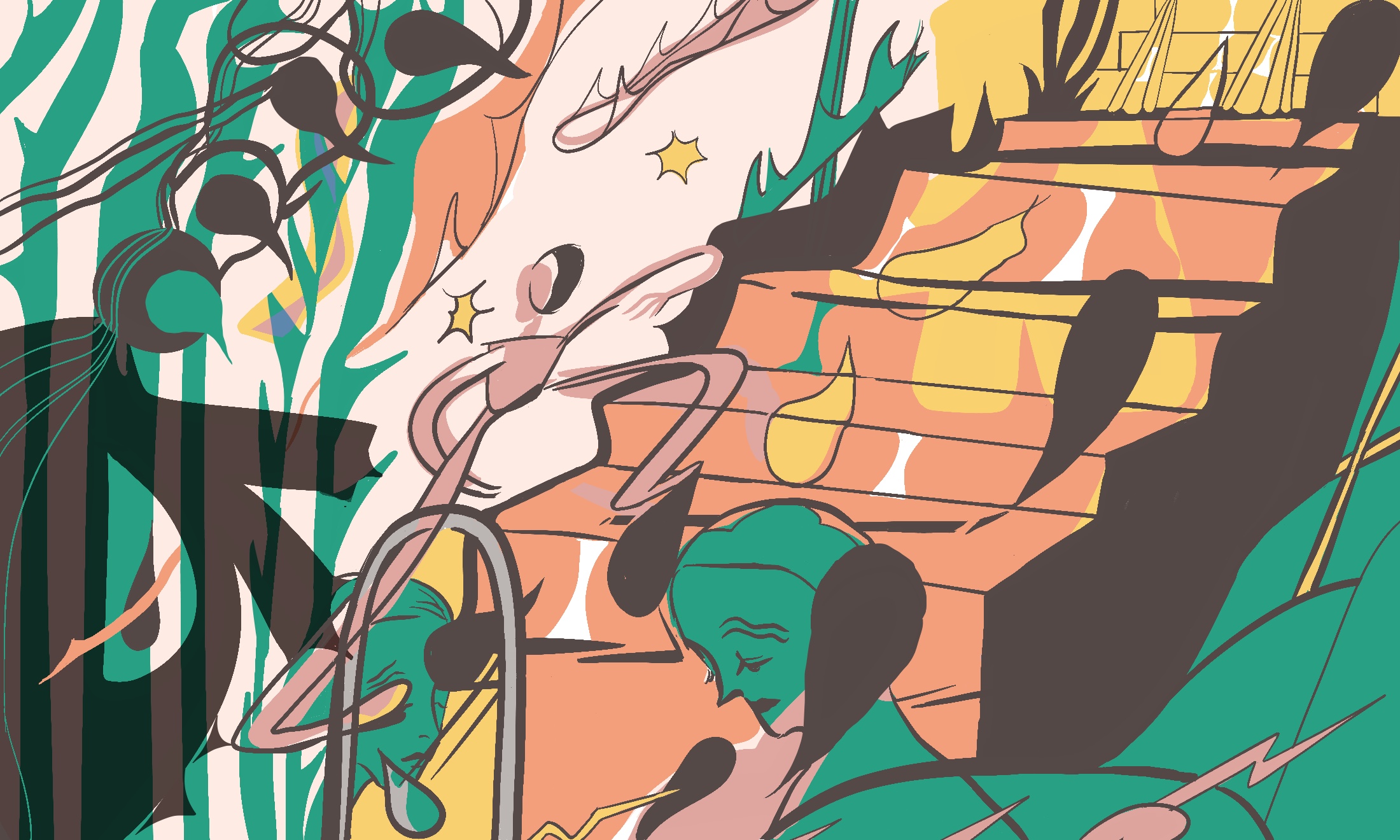
Ning Yang
Every time I move, I check the distance between the new house and the cemetery where my aunt is buried.
My aunt’s death 10 years ago transformed London into a traumascape, and for the three years I’ve lived here, I put off visiting the cemetery where she was laid to rest. The only time I went to her resting place was five years ago. I was with a relative who told me I will also lay in a similar grave one day, and that what awaits me there depends on the path I take. A very subtle reminder that they thought my late aunt chose the wrong path and now was suffering just a few feet away.
People like us are destined to suffer above and below the ground.
I don’t think anything happens after we die, contrary to all the Sufi teachings I’ve immersed myself in recently. However, letting go of this earthly life is central to the practice, and I do find that I do not hold on too tightly; I am just trying to maintain my grip on this world as it tries its best to expel me. I’ve spent most of my life obfuscating who I am from my family and community in fear of rejection, and I hid a little too well. Over the last two years, I’ve been untangling what it is to be a queer Muslim person and wondering if I could ever be visible and safe, visible and loved. If there will be parts of me that will persist when I’ve left this form. If my family will feel grief or relief.
“I’ve been untangling what it is to be a queer Muslim person and wondering if I could ever be visible and safe, visible and loved”
I struggle with the language we use around grief – coping, bargaining, accepting, processing. What does it even look like to ‘process’ grief? The temporality of grief is strange and nonlinear. It doesn’t have stages but instead is a constant state, a low hum in the background of my life. It slowly expands and radiates from my core, and while I have learned how to contain it, I can always hear its gentle drone. Sometimes others hear it too.
My aunt left traces of herself in every space she occupied – much to the discomfort of our family, because remembering her, also means remembering how they failed her time and time again. Living abroad alone since she was a teenager, she was able to understand parts of her identity she wasn’t able to explore at home. However, the mental health and substance abuse problems that resulted from trauma and isolation led to further ostracisation and rejection. In the wake of her death, many were left wondering if things would have been different if they offered help sooner, and approached her with more care than criticism.
As the country emerged from lockdown this year, I found myself seeking out traces of her, mapping out the psychogeography of my grief. I found myself visiting the shopping centre in her old neighbourhood, and at first just walking around the parking lot. The next time I sat by the playground out front, watching bleary-eyed parents push their children on swings. One day I finally managed to walk down to her home. I stood across the street, trying to conjure up an image of the estate circa 1995 from memory and project it onto the structure before me. Not much had changed except that this was no longer a home but instead, a void.
“I found myself seeking out traces of her, mapping out the psychogeography of my grief”
My aunt died a hundred times in this home before she left her corporeal form. This was the place she held me in her arms for the first time 30 years ago. The place where I saw my grandmother cry for the first and only time, because she feared that she could witness another child’s time come before her own (and it did). This was where my aunt would rest her head on my lap and say that she could never have a child because we have already filled her heart and she didn’t have room for anyone else. This was also the place where we witnessed her body breakdown slowly, and where she eventually passed. A person peeks through sheer curtains on the kitchen window and quickly draws them shut.
Then one Sunday morning in July, I found myself on the Piccadilly line to Heathrow Terminal 5. I hadn’t considered how I was going to find the grave on my own, and calling my mother out of the blue to ask where her sister is buried was a conversation I was unable to handle. What if she asks what I intended to do there? Read a prayer? Plant a lavender bush? Perhaps scrub the gravestone as an act of redemption, silently beg for absolution. I am a hypocrite – recoiling at what my relative uttered over my aunt’s grave when my own last words to her were just as cruel. I condemned her for neglecting herself and blamed her for her own deterioration. But I just didn’t know why. A lavender bush could never mask the scent of injustice that lingers over that grave.
“She persists in the spaces she chose, not the ones that were chosen for her”
Two trains and a bus later, I reach my destination and start my search in the Muslim section of the cemetery. Two hours passed with no luck, and I found myself fixing and cleaning the neglected graves of strangers. Defeatedly, I sent my mother a voice note to tell her where I was and she quickly replied with her own note with directions to her sister’s grave. She didn’t ask why. I listened to it on repeat for guidance and comfort as I walked down the paved path to the back of the cemetery.
There it was. On my knees, I pulled out all the weeds as I did for other graves I passed earlier. The grass on the plot was patchy and long and I was ashamed that I came empty-handed. I stared at the plaque with her name on it along with the dates she entered and egressed this world. When I put my hand down on the earth, I sense no trace of her. She’s not here – another void. In that I find relief, and when I think of her I hope I do not see that place. She persists in the spaces she chose, not the ones that were chosen for her, and what still remains is the futures that never came yet subsist in this realm, and hopefully, in the beyond.

